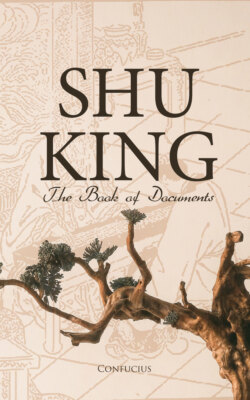Читать книгу Shu King: The Book of Documents - Confucius - Страница 4
На сайте Литреса книга снята с продажи.
Footnotes
Оглавление1. I put the introduction of Buddhism into China before our Christian era thus uncertainly, because of what is said in the article on the history of Buddhism in China, in the Records of the Sui Dynasty (A.D. 589-618), the compilers of which say that before the Han dynasty (began B.C. 202) Buddhism was not heard of in China. They refer to contrary statements as what 'some say,' and proceed to relate circumstances inconsistent with them. It is acknowledged on all sides that Buddhist books were first brought to China between A.D. 60 and 70.
2. Mr. Beal (Catena of Buddhist Scriptures from the Chinese, pp. 1, 2) says that 'the first complete edition of the Buddhist Canon in China dates from the Seventh century; that a second and much enlarged edition of it, called the Southern Collection, was prepared in A.D. 1410; that a third edition, called the Northern Collection, appeared about A.D. 1590; which again was renewed and enlarged in the year 1723.'
3. It is said in the Shwo Wăn that the phonetical element in Tî is ; but this is pronounced Ȝhze. Neither in form nor sound is there any similitude between it and Tî. An error, probably, has crept into the text. Dr. Chalmers, in his treatise on 'the Origin of the Chinese,' attempts (p. 12) to analyse the character into its constituent parts in the following way:--'The peculiar nature of the Chinese written language has done good service in stereotyping the primitive p. xxv belief in one Supreme Tî ( ), who is "great," over, and , "ruling," heaven ( = ) and earth ( )' This is ingenious, but not entirely satisfactory. The three last steps are so; but the finding (great) in the top part of does not in the same way carry conviction to the mind.
4. Thien Ȝze, 'the Son of Heaven,' is a common designation of the sovereign of China. Originally Ȝze performed in the expression the part of a verb, and Thien Ȝze was equivalent to 'he whom Heaven sons,' that is, considers and treats as its son. See the second line of the ode, p. 318.
